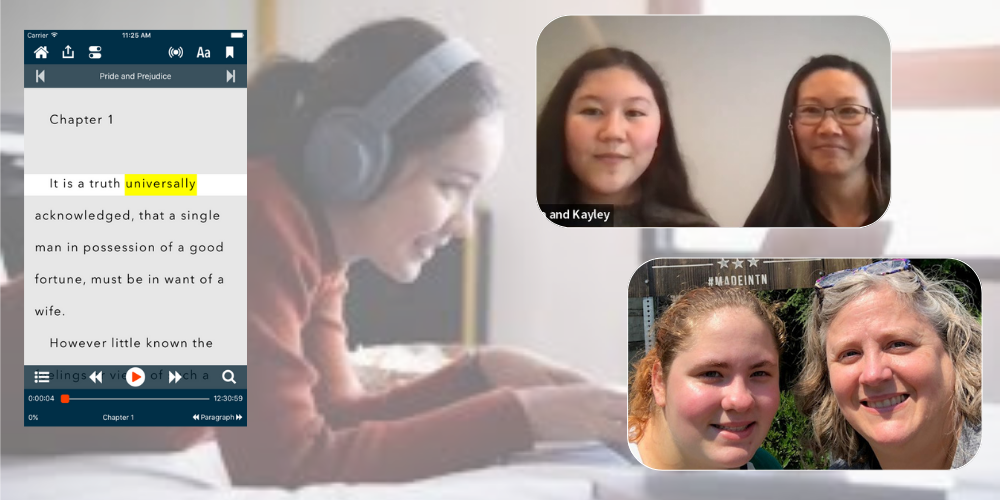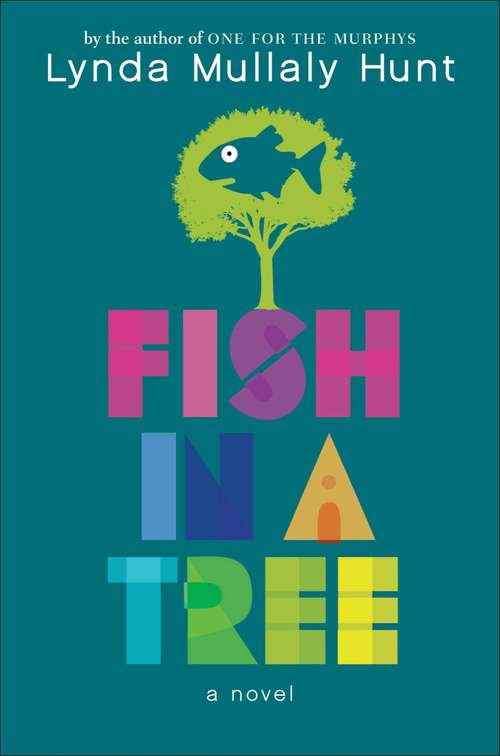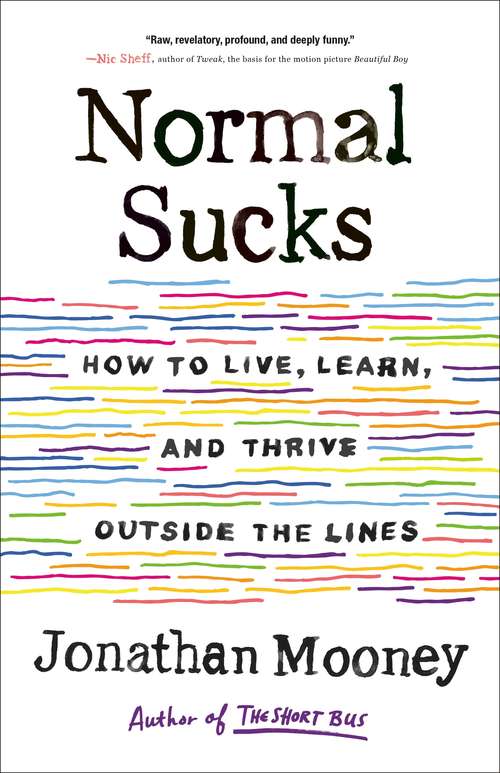In Part 1, two mothers and daughters shared their challenges and triumphs as they navigated learning support tools, assistive technology, and misperceptions about dyslexia. In Part 2, Beth and Alanna offer advice for other parents with neurodivergent kids. This series includes remarks from a February 8 webinar hosted by Bookshare and Understood.
Advice from Parents with Neurodivergent Kids
“Throughout this process, know that you are going to make mistakes, so have compassion for your child,” urges Alanna. “Advocacy skills are important to develop, but also focus on your child’s strengths that put smiles on their faces and give meaning to their lives. Use books as tools to support your kid’s passions. In the end, it will be OK.”
“Remediation is great, but don’t get hung up on reading in a traditional way,” adds Beth. “It takes a long time and denies access to literature at the student’s cognitive level. Introduce assistive technology (AT) early so it becomes a normal part of life.” She encourages parents to help their child find a balance of both remediation and AT. Ella started using Bookshare for fun reading and then expanded to academic reading.
Beth has a response for people who say that using Bookshare is not reading: “You are reading with your ears and with your eyes, just not in the same way that everybody else is.” Ella had to learn how to advocate for herself and tell a few teachers that she is reading like everyone else.
When to Tell Your Child About Dyslexia
“The sooner you talk about learning differences with your child and the more open you are the better,” says Beth who speaks from experience. “After Ella was diagnosed with dyslexia and dysgraphia, she was excited to have words to explain why reading was hard for her.” Beth sees parents at school who don’t want others to know their child is dyslexic. That makes it seem like something is wrong with them and something they should hide. “Those kids often refuse to use the amazing tools that are available for them, like Bookshare, and they really struggle in school,” she adds.
Alanna agrees and emphasizes that there is nothing to hide or tiptoe around identifying a child’s learning profile including dyslexia. “It’s such a privilege to have this data,” says Alanna. “Keep in mind it’s just a snapshot and the data can improve. Kayley loves to understand herself and find ways she can do better. Individuals who are neurodivergent are amazing,” she adds.
“Bookshare isn’t just for education. Kayley enjoys reading. It is one of her favorite hobbies. It provides comfort and entertainment, and many times she chooses to read in her room rather than watch TV. That’s incredible for someone who struggled so much with reading.” -Alanna
As Dr. Andrew Kahn mentioned in his recent blog, “students with learning differences are often stereotyped as less capable, lazy, or needing to be pulled from their classrooms — all of which couldn’t be farther from the truth, but can nonetheless lower self-esteem and classroom engagement.” Alanna notes that these myths and harmful messages can discourage students from trying new strategies and accommodations. “I know of kids, including Kayley, who jumped multiple reading levels in one calendar year when they finally got the teaching they needed, understood their brains, gained some agency, learned to advocate, and used inclusive technologies,” says Alanna. “Imagine how far students can go once they understand their dyslexic learning style.”
Recommended Resources
Beth recommends two books: Fish in a Tree by Lynda Mullaly Hunt for students and Normal Sucks by Jonathon Mooney for parents. Both books recognize that everyone has different strengths and it’s okay. In addition, groups like Made by Dyslexia and Dyslexic Advantage offer many helpful resources.




[…] Mother-Daughter Duos Share Dyslexia Journey Pt. 2 […]
You can`t imagine how grateful I am for both parts of your post. As a mom with a 4-year old with dyslexia 🙂
How fortunate Ava that you’ve already identified that your preschooler learns differently. Now you can explore ways that work better for her!
I’ve often found other parents (some of whom are educators too) who were ahead of me and helped navigate my parenting journey. Seek out a supportive community for you and your child because you are in good company!
Hi Ava,
I’m curious about this identification! Dyslexia usually is discovered once a child begins learning to read at age 5 or 6, sometimes even later based on their exposure to systematic literacy instruction. How did you discover your daughters dyslexia so early? Is there a new form of assessment I should know about?
Thanks for your help!
Jess